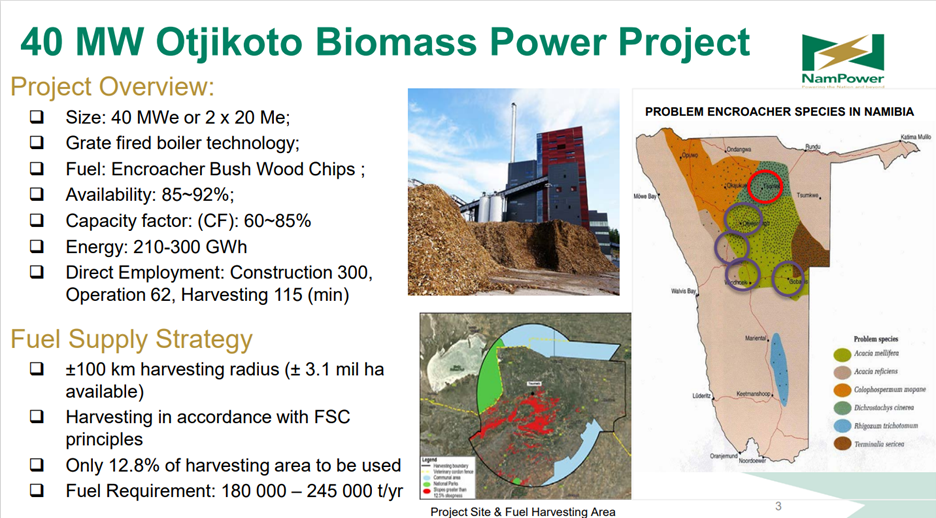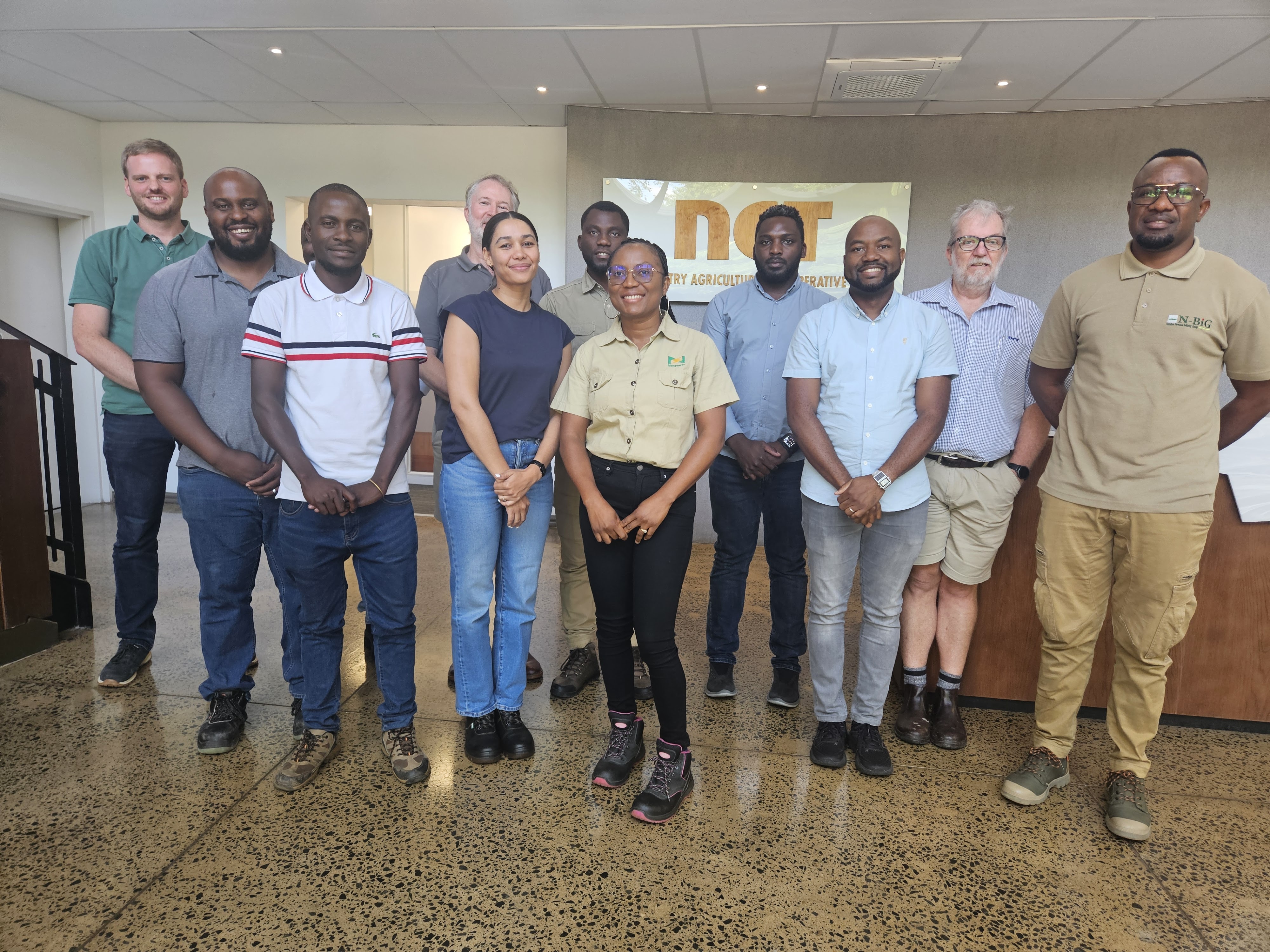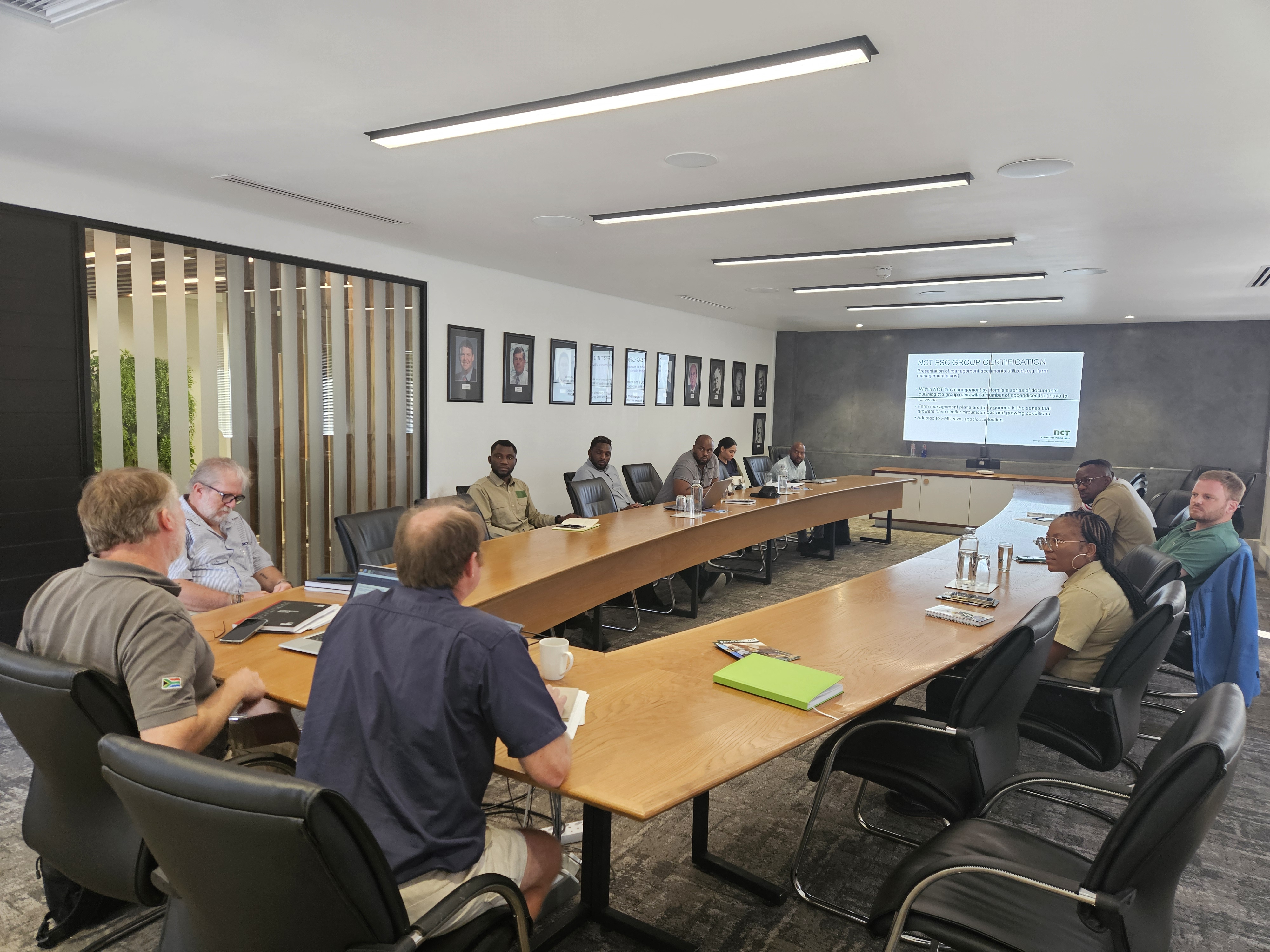Biomass power station project
NamPower is Namibia’s national power utility, responsible for electricity generation, transmission, and distribution. The organisation is developing the 40 MW Otjikoto Biomass Power Station near Tsumeb to enhance energy security, combat bush encroachment, and promote sustainability. The project will generate electricity by utilising wood chips from encroacher bush, a widespread issue in Namibia that affects over 46 million hectares of land.

The fuel supply strategy involves sourcing biomass through long-term and ad-hoc contracts with local suppliers, who will harvest, process, and deliver the wood chips. The project is expected to stimulate the local economy, create jobs, and contribute to environmental sustainability by thinning bush and improving land productivity.
Why choose FSC for the biomass project?
NamPower recognizes the numerous benefits associated with the FSC system, including economic viability, environmental protection, and social responsibility. By pursuing FSC Certification, NamPower not only ensures the use of environmentally responsible materials but also addresses the rights of communities and indigenous peoples in the region. The FSC certification supports the company's commitment to renewable energy solutions while promoting the long-term health of Namibia’s forestry sector and benefiting local farmers involved in the biomass supply chain.
Knowledge exchange in Pietermaritzburg

To support its pursuit of Forest Management group certification to secure FSC-certified biomass from various smallholder farms, the FSC Southern Africa certification office collaborated with NCT Forestry Cooperative Limited (NCT) to organize a knowledge-sharing session aimed at enhancing NamPower's understanding of the FSC group certification scheme.
The event took place in Pietermaritzburg, South Africa, on 4-5 March 2025, and included comprehensive training and a field visit designed to equip NamPower with the necessary knowledge and practical skills to establish and manage its own FSC Group Scheme effectively. The Forest Management group certification has been developed to help forest owners, and in particular owners of smaller woodlands, achieve FSC certification by reducing the auditing burden and costs.
NCT Forestry Cooperative Limited (NCT), the partner for this event, is a leading South African forestry cooperative that provides various services to timber growers, including timber marketing, logistics, and FSC certification facilitation, with its first Forest Management certification dating back to around 1999. NCT has extensive experience in managing FSC Group Schemes and serves as a model for organisations looking to implement structured and sustainable forestry management practices.
This training session was an opportunity for NCT to share its vast experience and for NamPower to learn from one of the best in the subregion regarding how to manage group schemes using FSC standards.
During the training, NamPower gained valuable insights into establishing and managing a group scheme from the perspective of a group scheme manager, with expert guidance from Colin Summersgill, the Group scheme manager of NCT.
Group Scheme members share experiences

The day one sessions covered key aspects of daily operations, providing practical advice on effectively running a group scheme. Additionally, two farmers who are members of NCT’s group scheme shared their personal experiences, discussing their reasons for joining the FSC group scheme and the ongoing motivations that keep them committed to sustainable practices. They noted that while price premiums were the initial motivators for joining the FSC group scheme, doing the right thing and witnessing the remarkable positive differences between FSC-certified and non-FSC-certified plantations have become their true driving forces.
On day one, NamPower representatives asked numerous questions about labour practices and environmental considerations. The two farmers explained the processes and practices they have implemented to ensure both environmental sustainability and fair labour practices. This interactive discussion deepened the understanding of operational dynamics and the collective responsibility of scheme members in maintaining ethical and environmental standards.
On the second day, Sappi KwaZulu-Natal offices hosted the next phase of the training, which included a deep dive into the FSC group standard. Sappi is a leader in sustainable woodfibre products and solutions in South Africa that is committed to sustainable forest management and responsible sourcing.
Led by the FSC Southern Africa certification office, the day two session examined how to effectively build and manage a group scheme with multiple stakeholders and successfully gain and maintain the FSC group certification.
Learn more about the FSC group scheme
